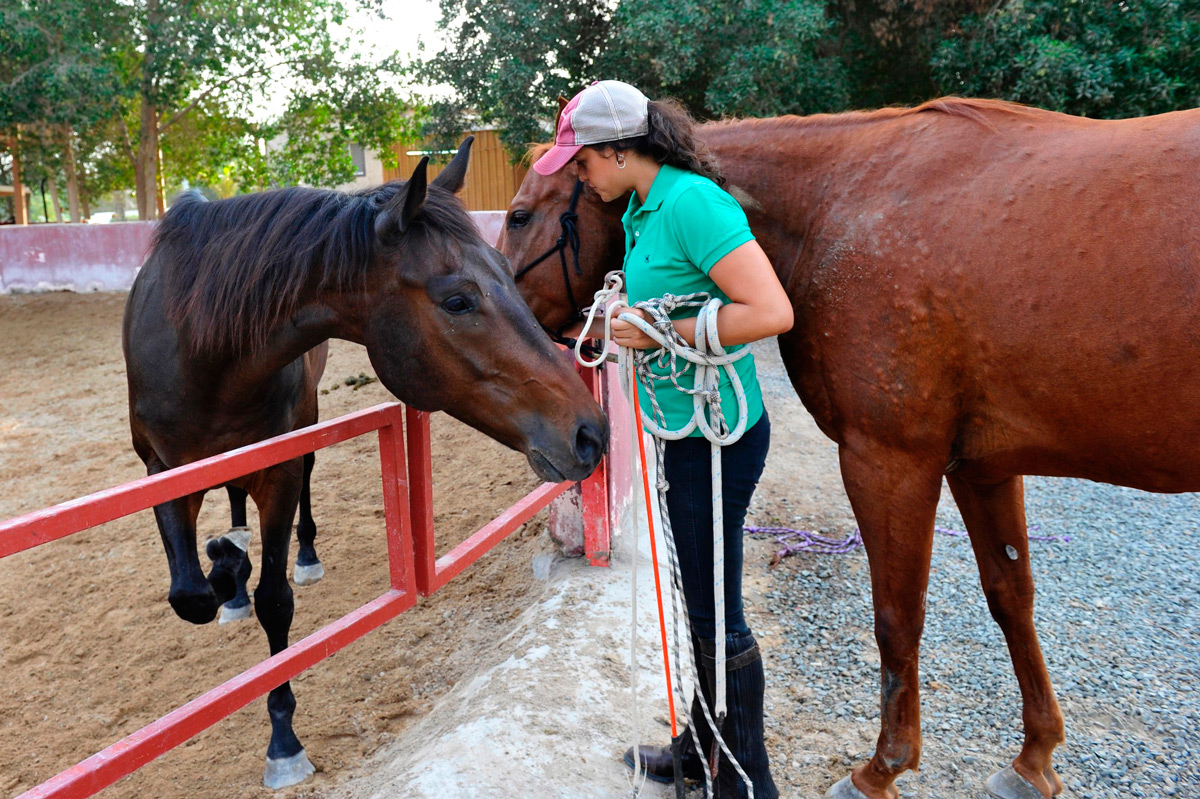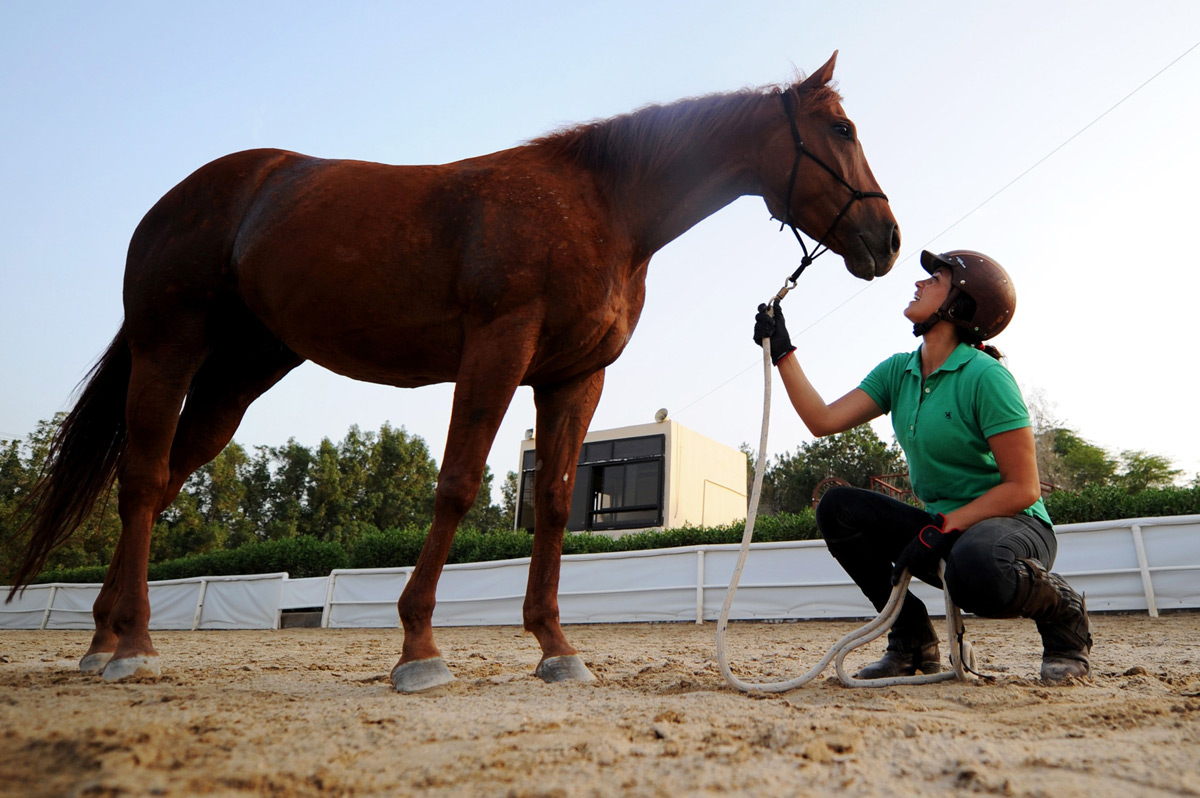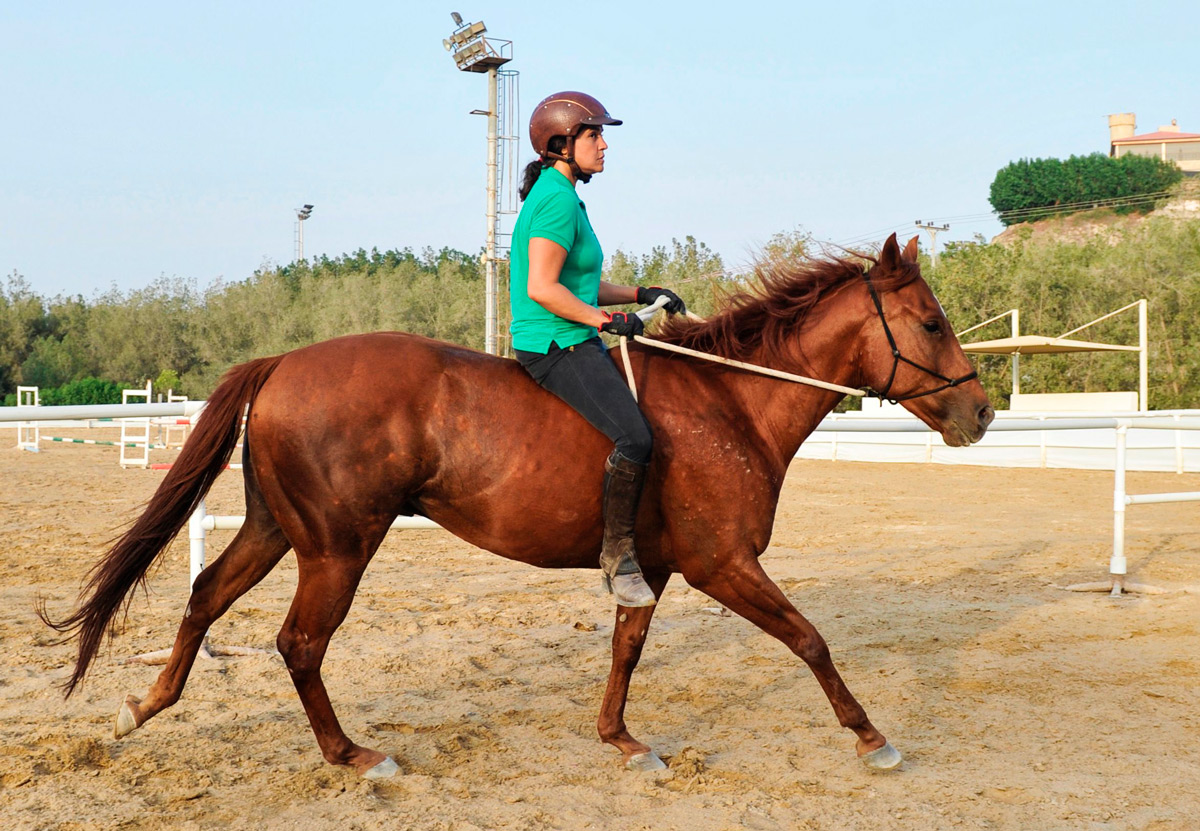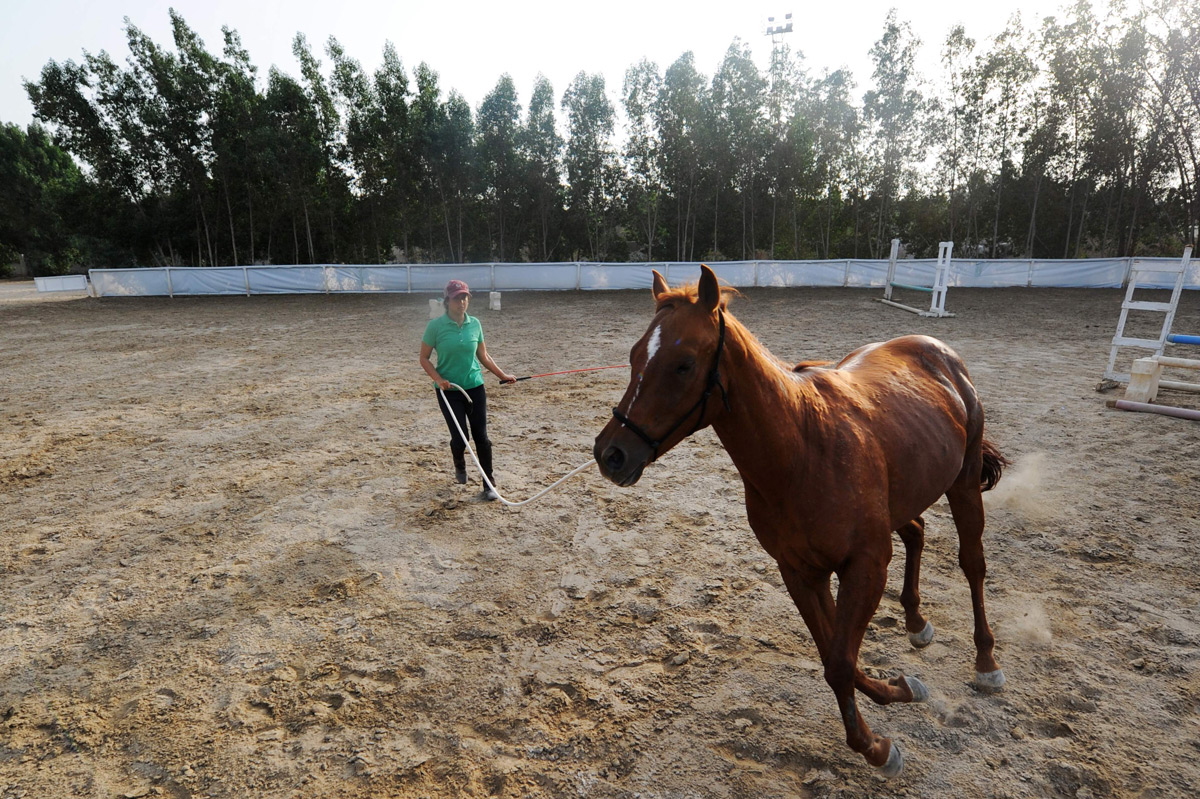Female Saudi Horse Trainer Sees Hope for Women

Saudi Dana al-Gosaibi walks a horse during a training session, in the Red Sea city of Jeddah. The 35-year-old Saudi horse trainer dreams of opening her own stables to focus on "a more gentle" way of training horses than the standard approach in the male-dominated kingdom. (AFP)
Dana al-Gosaibi's passion for horses has been hard to pursue in Saudi Arabia.
But the kingdom's advancement of women's rights has given the Saudi horse trainer hope that one day she might be able to realise her dream of starting her own business.
"There is this very weird belief that a woman shouldn't ride a horse," Gosaibi says.

"It's amazing how a lot of people believe these things," she tells AFP ahead of International Women's Day on Wednesday.
Herself unmarried, Gosaibi, 35, dreams of opening her own stables to focus on "a more gentle" way of training horses than the standard approach in the male-dominated kingdom.
Saudi Arabia has some of the world's tightest restrictions on women.
But change is under way, says Gosaibi, who returned to Saudi Arabia four years ago after more than a decade living abroad.

"I came back and I saw all these women" working as cashiers, in sales and in offices, Gosaibi says.
Since last year, a government plan for social and economic reforms has given more impetus to this trend.
The government wants more women in the workforce as part of the Vision 2030 plan to diversify the country's oil-based economy, and is trying to expand sports opportunities for everyone.
Saudi Arabia last year appointed a princess to oversee women's sports in the conservative kingdom.
Princess Reema bint Bandar al-Saud in February said authorities would begin granting licences for women-only gyms, local media reported.
"Even (in) sport they're really encouraging women, which is a very new thing," Gosaibi says, taking heart that the change heralds a more favourable climate for starting her business training horses.

But the horse trainer, who learned her skills in Britain and the US, says she has faced resistance - "especially with my approach" to the animals.
Horses have been central to Saudi life for centuries, and the kingdom is famed for its strong desert-bred Arabians from which the racing thoroughbreds are descended.
The traditional way of training horses in Saudi Arabia requires "a lot of force" including spurs and whips, she says.
But Gosaibi prefers to take her time, observing the animal and learning to understand the way it thinks until she "becomes part of the horse's herd".

"You need to establish a certain relationship and understanding because the horse needs to trust you," she says, whether you are preparing a horse for show jumping or rodeo.
Many Saudi women are now taking riding lessons, Gosaibi says.








